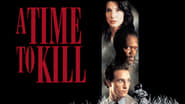Exoticalot
People are voting emotionally.
ChicRawIdol
A brilliant film that helped define a genre
StyleSk8r
At first rather annoying in its heavy emphasis on reenactments, this movie ultimately proves fascinating, simply because the complicated, highly dramatic tale it tells still almost defies belief.
Gary
The movie's not perfect, but it sticks the landing of its message. It was engaging - thrilling at times - and I personally thought it was a great time.
classicsoncall
Another reviewer on this board made a comparison of the film with "To Kill a Mockingbird", and although the same thought came to me while watching it, the similarity is never fully realized. In the earlier movie, a black man was found guilty of raping a white woman, and the stereotype of redneck Southern justice is essentially carried out. The better comparison I think, can be made with another film I just recently viewed, that being "Sleepers", in which a pair of thugs murder a former reform school guard who physically abused them while they were in their teens. The whole idea of social justice is stood on it's head in both films, and if the thought behind each movie is to make viewers feel conflicted about their outcomes, then they both succeeded. Just like Gregory Peck's character in 'Mockingbird', Jake Brigance approached his job via a one on one relationship with the accused, a man who's ability to reason is shattered when his ten year old daughter is assaulted and raped by the side of the road, and left to die when a couple of degenerates decide to partake in some demented version of what they consider fun. However the character who perhaps straddles the line best between blacks and whites in the story is Sheriff Ozzie Walls (Charles S. Dutton), a black man who has the same keen sense of justice as does Brigance. He's unafraid to arrest the guilty perpetrators of the horrible rape of the ten year old Tonya Hailey (RaéVen Kelly), nor is he troubled about taking her father (Samuel L. Jackson) into custody for the shooting at the courthouse. I had the sense that he was a well respected man of Canton who saw his job as color blind in the eyes of the law.In a way, the picture's most defining moment might have been saved for the very final scene. Following Carl Lee Hailey's (Jackson) impassioned dialog with his lawyer, one which inspired Jake Brigance to revamp his closing argument, we see Brigance and his family arrive at the Hailey home, as jubilant neighbors celebrate the acquittal. Taking to heart what it means to be truly accepting of others different from themselves, Jake confidently comes to terms with Carl Lee's persuasive suggestion by stating, "Just thought our kids could play together".
Alyssa Black (Aly200)
From bestselling author John Grisham comes this taut and suspenseful thriller about an African-American man on trial for killing his ten year old daughter's rapists and the crisis of faith his inexperienced Caucasian lawyer must deal with as he fights for his client's life.With an all star cast, the charge is lead by Matthew McConaughey as the inexperienced Jake Brigance, a protégé of a famed but since disbarred legal figure in his community. McConaughey's Jake is naïve, arrogant and eager for his chance to participate in a murder trial to prove his metal. However each encounter with his client, Carl Lee Haley (a perfectly cast Samuel L. Jackson), chips away at Jake's foolish ideals as he must grow from a wannabe bigwig to a man humbled by what he uncovers as the trial when Jake realizes that a similar experience could befall his own young daughter. Jake even contends with the temptation of unfaithfulness by the allure of Sandra Bullock's intelligent Ellen Roark, but as Jake begins to find where his truths lie he finds himself unable to forfeit his marriage as he sees how much he really cares for the people around him. The momentous breakthrough has to be the final summation that Brigance gives to the jury as he describes the torment that Tonya Haley endured (watching McConaughey try to resist an emotional breakdown as he delivers the address is one of the most intense) and asks the all-white jury to imagine if Tonya were the same race.The performances from Samuel L. Jackson, Sandra Bullock and Ashley Judd also rise to occasion especially for Jackson's Carl Lee as he embodies any father who would want to avenge a horrid wrong done to his child. It's Carl who humbles his naïve attorney and forces him to see the differences between the two of them; Jake being a privileged white attorney who can easily get sympathy while Carl is a black machine worker that killed two white men which Carl knows (and Jake soon realizes) is what could end up costing him his freedom or life. Bullock as Ellen Roark is used sparingly, but she becomes a vital member of Jake's legal arsenal as Ellen's vast knowledge helps educate Jake in how he proceeds with his defense of Carl Lee. Ellen also provides a solace for Jake when his marriage becomes rocky due to his decision to defend Carl leads to numerous attempts to harm them, but in the end Ellen knows that Jake won't risk his family to be with as her near-death experience reminds him of the human frailty in the world. And to briefly touch on Ashley Judd as the put-upon Mrs. Brigance, she brings a real depth to her performance as the actress balances between a woman who respects her husband's profession, but is afraid of the public repercussions though she ultimately sticks by her husband in a touching scene.Grisham himself praised the film's faithfulness to his novel and the strong casting. Critics also praised the film's handling of such controversial subjects though many were still unsettled by the material. Do keep some tissues handy cause you may need them.
sinisterene
This movie is the film adaptation of John Grisham's A Time to Kill. Some would (inevitably) argue that the book is better but I won't because both are pretty bad. I will make the case for the film being better merely because the acting had more emotion than the novel.According to Wikipedia "The inspiration came from the case of the rape and assault of 12 year old Marcie Scott and her 16 year old sister Julie Scott. Unlike Grisham's depiction, however, the Scotts were white and their assailant, Willie Harris, was black." which is hilarious when you consider the defense's closing argument "now imagine she's white."Only in the realm of fiction could the plot of this movie happen.There's an iconic scene by Samuel Jackson so I'll give it 2 stars.
sol-
Sympathetic to the crime of a local African American who shot dead two men who raped his preteen daughter, a Mississippi lawyer tries to get his client off the hook by pleading temporary insanity in this courtroom drama. The key issue highlighted here is whether the murderer, played by Samuel L. Jackson, can get a fair trial in such a deeply racist community, and the film's most potent scenes are dedicated to a KKK rebirth as the trial stirs up division. The film trips up though by making racism (not ethics) the central issue and by making the local D.A. such a condescending, despicable character that his argued logic (individuals should not take the law into their own hands) gets buried beneath his smarminess. Examined objectively, Jackson is unquestionably guilty. Having hinted to his lawyer what he intended to do beforehand, it is unethical for the lawyer to plead temporary insanity, quite aside from the fact that rape (no matter how brutal) is seldom ever argued as grounds for justifiable homicide. With all this in mind, the movie becomes very uncomfortable to watch as we are positioned to root for Jackson to get off, simply because it would be a triumph over racism. The unanswered question that lingers in the air is whether Jackson would have gotten off were he Caucasian because then the jury would not feel racist if they voted 'guilty'. And yet, while deeply flawed, 'A Time to Kill' is always engaging to view. The performances are uniformly excellent, tension frequently abounds and the telling final shot is great -- but one's moral compass may well waver while watching the film.






